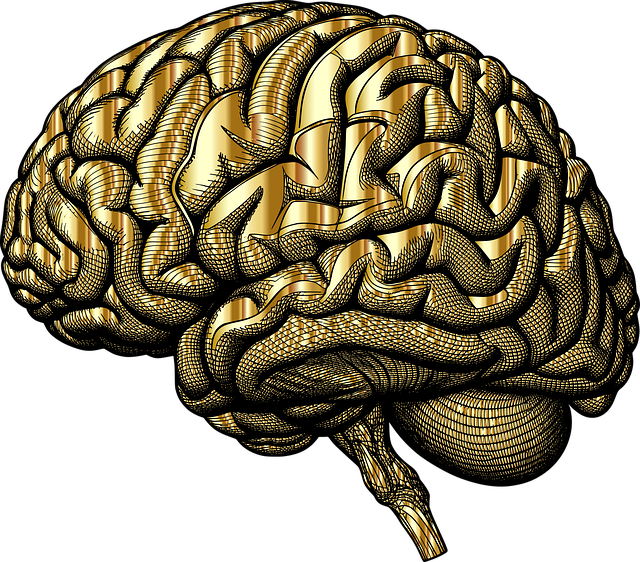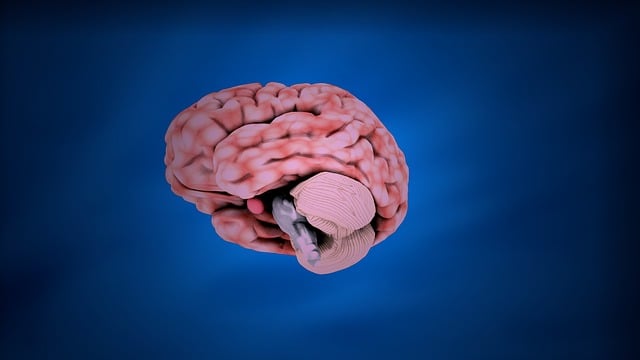Crisis Intervention Teams (CITs), powered by experts from Northglenn Functional Neurological Disorder Therapy, provide immediate mental health support during crises. By integrating diverse disciplines like psychology, social work, and nursing, these teams de-escalate high-risk situations, offer comprehensive care, and connect individuals with ongoing treatment. Northglenn's specialized training focuses on depression prevention, emotional resilience, stigma reduction, and self-care practices, empowering professionals to challenge stereotypes and maintain composure in crises. Their Mind Over Matter principles, combined with community engagement through the Mental Wellness Podcast Series Production, break down mental health stigmas and improve access to care, making CITs vital resources for human-centric crisis response.
Crisis intervention team (CIT) training programs are essential resources for equipping communities with effective mental health support. In this article, we explore the critical role of specialized programs like Northglenn Functional Neurological Disorder Therapy in enhancing CIT preparedness. We delve into key components, benefits, and real-life applications, highlighting how these programs empower teams to manage crises predictably and effectively. Understanding and implementing best practices from such initiatives can significantly impact community well-being.
- Understanding Crisis Intervention Teams: A Vital Resource for Mental Health Support
- The Role of Northglenn Functional Neurological Disorder Therapy in Training Programs
- Key Components of Effective Crisis Intervention Team Training
- Benefits and Impact on Communities: Real-Life Applications
- Preparing for the Unpredictable: Skills and Strategies for Successful Crisis Management
Understanding Crisis Intervention Teams: A Vital Resource for Mental Health Support

Crisis Intervention Teams (CITs) are an invaluable resource for providing immediate and effective mental health support during crises. These teams, often comprised of trained professionals from various disciplines, are designed to respond swiftly when individuals are experiencing severe emotional distress or a mental health emergency. In communities like Northglenn, where functional neurological disorder therapy is accessible, CITs play a crucial role in enhancing the well-being of residents facing mental health challenges.
By integrating members with expertise in areas such as psychology, social work, and nursing, these teams can offer comprehensive care. They are trained to de-escalate high-risk situations, provide immediate support, and connect individuals with ongoing treatment options. The goal is not only to manage acute symptoms but also to improve self-esteem and foster effective stress management, as evident in successful case studies across the country. Additionally, CITs contribute to better mood regulation, ensuring that those in crisis receive the care they need without delay.
The Role of Northglenn Functional Neurological Disorder Therapy in Training Programs

In the realm of crisis intervention team training, Northglenn Functional Neurological Disorder Therapy stands out as a beacon of specialized support. This innovative program integrates comprehensive approaches to address complex mental health challenges, including mood management and burnout prevention strategies for healthcare providers. By focusing on the underlying neurological aspects of various disorders, Northglenn offers a unique perspective that enhances traditional therapeutic methods.
The expertise lies in its ability to equip participants with cutting-edge tools tailored to depression prevention and overall emotional resilience. Through interactive sessions, practitioners gain insights into recognizing subtle cues of distress, enabling them to respond effectively during critical situations. This proactive approach not only benefits the healthcare providers but also ensures better patient outcomes, fostering a supportive environment where crisis intervention teams can thrive.
Key Components of Effective Crisis Intervention Team Training

Effective crisis intervention team training programs are multifaceted and holistic, aiming to prepare professionals for a wide range of challenging scenarios. At Northglenn Functional Neurological Disorder Therapy, we emphasize several key components that foster successful interventions. Firstly, Mental Illness Stigma Reduction Efforts play a pivotal role in creating an inclusive environment where individuals feel safe to express their struggles openly. This involves training team members to recognize and challenge stereotypes associated with mental health conditions.
Secondly, cultivating Self-Awareness Exercises is essential for building empathetic connections during crises. These exercises promote understanding of one’s emotional responses and biases, enabling team members to approach situations with clarity and composure. Equally important are the integration of Self-Care Practices, which ensure that interventionists maintain their own mental and emotional well-being. This not only enhances their resilience but also allows them to offer sustained support to those in crisis.
Benefits and Impact on Communities: Real-Life Applications

Crisis intervention team training programs play a pivotal role in empowering communities to effectively respond to mental health crises. By equipping individuals with the necessary skills and knowledge, these initiatives ensure that help is readily available when it’s needed most. The benefits are manifold; from reducing the burden on emergency services to fostering a more supportive and understanding environment for those grappling with mental health issues.
In real-life applications, crisis intervention teams have been instrumental in Northglenn Functional Neurological Disorder Therapy, utilizing Mind Over Matter principles to help individuals regain control and improve their overall mental wellness. These programs often incorporate Mental Wellness Podcast Series Production as a tool for sharing recovery stories and strategies, further enhancing community engagement and awareness. By addressing depression prevention head-on, crisis intervention teams contribute to breaking down the stigma surrounding mental health, ultimately leading to improved access to care and better outcomes for individuals in crisis.
Preparing for the Unpredictable: Skills and Strategies for Successful Crisis Management

In an era where mental health challenges, such as functional neurological disorders (FND) and other invisible illnesses, are increasingly recognized, crisis intervention team training programs play a pivotal role in preparing communities for the unpredictable nature of these crises. Northglenn Functional Neurological Disorder Therapy emphasizes that every situation is unique, demanding tailored strategies to effectively manage and de-escalate them. The focus shifts from reactive responses to proactive preparation, empowering teams to navigate complex scenarios with confidence.
Through comprehensive training, participants gain invaluable skills in emotional intelligence and empathy building, crucial elements in breaking down the mental illness stigma reduction efforts. These programs equip individuals with the means to recognize subtle cues, understand underlying causes, and offer compassionate support. By fostering an environment of understanding and trust, crisis intervention teams become vital resources, ensuring a more effective and human-centric response to unexpected crises.
Crisis intervention team (CIT) training programs, enriched by approaches like Northglenn Functional Neurological Disorder Therapy, play a pivotal role in equipping communities with essential mental health support tools. By focusing on key components such as empathy, de-escalation techniques, and effective communication, these programs empower CIT members to navigate unpredictable crisis scenarios successfully. The benefits are profound: improved community safety, enhanced coping mechanisms for individuals in distress, and a testament to the power of proactive mental health initiatives. Investing in CIT training is a game-changer, fostering a more resilient and supportive society where everyone can access the help they need.












